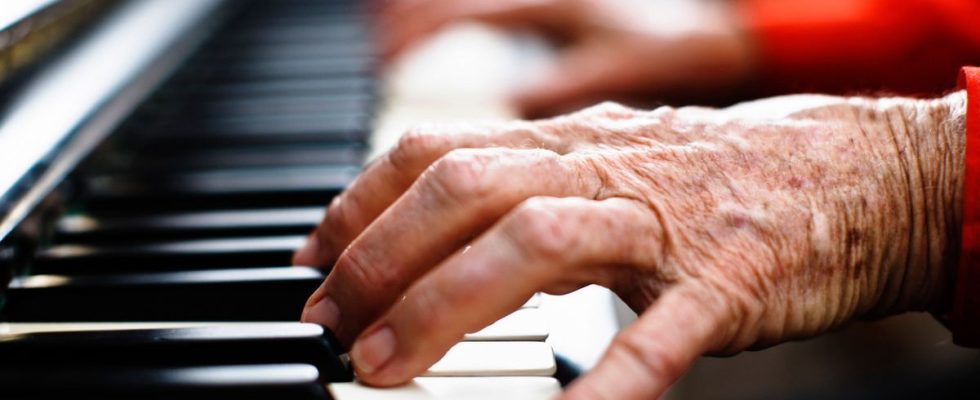Published on
Updated
Reading 2 min.
The piano has many fans around the world. This is not surprising since the practice of this instrument can be beneficial, especially among the elderly. A study sheds new light on how seniors learn to play the piano. It shows to what extent this activity maintains their cognitive functions and motor skills in the long term.
The authors of this study published in the journal Brain Sciences arrived at this observation after carrying out an experiment with 86 volunteers, with an average age of 72.5 years. They were all healthy and had no significant neurological or motor problems. Some of them had played the piano in the past, but they were still beginners.
The piano, an anti-aging ally for the brain
The researchers assessed the participants’ working memory and learning ability by asking them to perform several sequences of actions. During the experiment, volunteers had to press piano keys in a specific order, which was displayed on a screen. They had to complete this task as quickly and accurately as possible, without stopping.
The results revealed two striking facts. Participants would improve quickly, before plateauing. This suggests that their skills were refined the more they practiced. “The level of cognitive and motor demands depends on the learning phase. With our experience we have shown that demands increase exponentially during the learning process and eventually reach a plateau“, said Florian Worschech, postdoctoral researcher at the University of Hannover and co-signer of the study, at Psypost.
Learning a motor skill sharpens our brain
Furthermore, Florian Worschech and his colleagues noticed that the visual behavior of volunteers evolved according to their level of mastery of the task they had to perform. Their eyes moved less and less as they trained, suggesting that they needed less visual information as they progressed. “During the learning process, movement sequences are increasingly consolidated in procedural memory [la mémoire des automatismes, ndlr.] and explicit information loses its importance. After a while, participants are often no longer able to explicitly remember the motor sequence“, explain the researchers in their study.
Overall, this study shows how much learning a motor skill like playing the piano requires our brain. And this, even when we reach a certain level of mastery. Tasks made automatic by learning stimulate us cognitively, even if we tend to think the opposite.
This is why it is important to encourage piano practice at an advanced age to delay the onset of cognitive decline. This activity requires, not only paying attention to sounds, but also moving your gaze over a score and your fingers over specific keys. Nothing better to give your brain a makeover.
